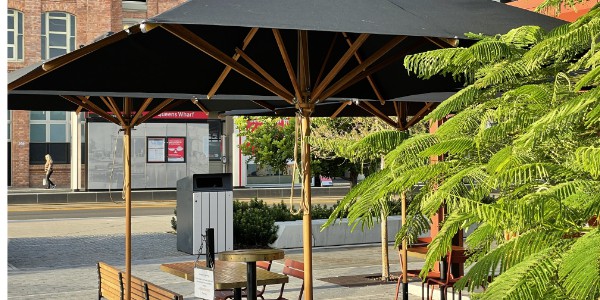Ho’Oponopono (WT561)
Blog
This week I thought I would share another story to demonstrate where I use Ho’oponopono [ho.ʔo.po.no.po.no]. I have mentioned it before in Weekly Thoughts and it is so powerful, it deserves repeating. We also have it proudly displayed on the top of our motorhome, clearing the way as we go.
Firstly, what is Ho’Oponopono?
The word “ho’o” means “cause” in Hawaiian, while “ponopono” means “perfection”. The term “ho’oponopono” can be translated as “correct a mistake” or “make it right”.
Ho’oponopono is an ancient Hawaiian spiritual practice that helps us to forgive past wrongs, conflicts, misunderstandings, and similar.
It teaches us that difficulties are manifestations of past wrongs as memories, and these memories influence our daily lives, hence the need to clear them.
I first heard about Ho’Oponopono through Dr Joe Vitale. He had heard about and subsequently met Dr Ihaleakala Hew Len who had studied with the creator of Ho’oponopono (Morrnah Nalamaku Simeona). Dr Hew Len talks about how, at first he thought Morrnah was crazy, and yet he took on her teachings. He has a Phd in Psychology and he accepted a contract to work in a hospital/gaol for the criminally insane in Hawaii. When given the position he told his employers that he would not meet with the inmates; he would do his work in private.
Each day he would go to his office, open the files of the inmates and practise Ho’oponopono. Within a couple of years, the inmates were rehabilitated and the hospital/gaol closed down.
Amazing stuff.
Dr Hew Len understood that we are responsible for everything that happens, especially if we are involved or participating. Ho’oponopono helps us to clear whatever it is that we have done, consciously or unconsciously.
For example, if someone upsets me and I get emotional about it, I immediately look to how I am responsible for the situation. I know that I am responsible for everything that happens in my life. If I am part of it, I am responsible.
Sometimes I don’t know what that is on a conscious level. That’s where Ho’oponopono comes in. It helps me to clear and release or “correct a past mistake”.
By simply reciting 4 phrases, I can clear what is happening.
The 4 phrases are (said aloud or mentally, in any order):
- I’m sorry
2. Please Forgive Me
3. Thank You.
4. I Love You
What I am saying to the universe, God, Infinite Intelligence, whatever name you want to use is, I’m sorry, I don’t know what I’ve done to create this, Please Forgive Me, Thank you for the forgiveness and I love you.
Next time you find yourself in a situation that is not to your preference, take responsibility for it (even though you may not know how you caused it or what part you have played) and practise Ho’oponopono.
It really does work.
Give it a go and see.
I’m Sorry, Please Forgive Me, Thank You, I Love You!
Regards Shirley
P.S. Our next free monthly webinar will be held on Friday 9th April at 11:00am Sydney time. We’ll be going deeper on your leadership style and your mindset and how this affects the degree to which you create and manifest the possibilities you want in your life. Click here to register:https://shirleydalton.convertri.com/1-1-possibilities-webinar
P.P.S.Invite your friends to get the Weekly Thoughts delivered directly to their inbox. Go to https://shirleydalton.com/weekly-thoughts.











